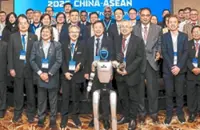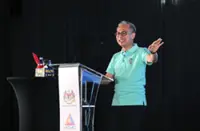Asked in a 60 Minutes interview about what keeps him up at night with regard to AI, Pichai said ‘the urgency to work and deploy it in a beneficial way, but at the same time it can be very harmful if deployed wrongly’. — Bloomberg
Alphabet Inc and Google chief executive officer Sundar Pichai said in an interview broadcast Sunday that the push to adopt artificial intelligence technology must be well regulated to avoid potential harmful effects.
Asked in a 60 Minutes interview about what keeps him up at night with regard to AI, Pichai said “the urgency to work and deploy it in a beneficial way, but at the same time it can be very harmful if deployed wrongly.”





